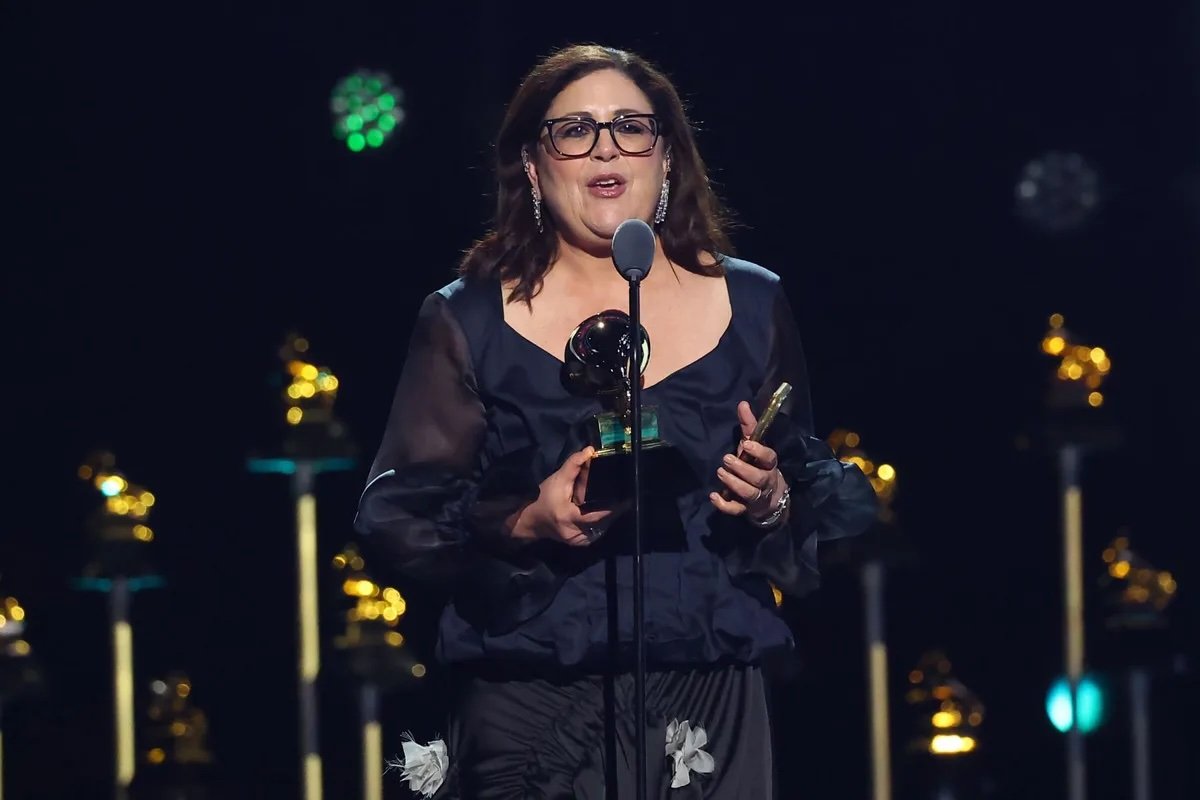Women’s Voices Reshape Classical Music: A Closer Look at the 2025 Grammy Awards
The 67th GRAMMY Awards marked a decisive shift in classical music, celebrating artists who are redefining the genre and making space for voices long overlooked. This year’s winners not only demonstrated technical brilliance but also showed how classical music can respond to contemporary social movements while honouring its traditions. Through bold interpretations, rediscovered works, and genre-blurring compositions, these women are reshaping what classical music can be.
Gabriela Ortiz’s Revolución Diamantina: A Soundtrack to Resistance
Mexican composer Gabriela Ortiz emerged as a standout, winning three major awards:
Best Classical Compendium
Best Contemporary Classical Composition
Best Orchestral Performance (awarded to conductor Gustavo Dudamel and the Los Angeles Philharmonic)
Her ballet score, Revolución Diamantina, is a powerful example of how classical music can engage with social movements without sacrificing artistic complexity. The piece mirrors the energy of feminist protests in Mexico City, shifting between structured precision and moments of controlled chaos. Ortiz’s innovative use of choral writing departs from conventional Western classical traditions, evoking raw, primal emotions that capture the urgency of political resistance.
In her acceptance speech, Ortiz dedicated the award "to all the brave women in Mexico and around the world who fight against injustice every day," reinforcing the work’s deep connection to activism.
Karen Slack and Michelle Cann Illuminate Florence Price’s Hidden Legacy
Soprano Karen Slack and pianist Michelle Cann won Best Classical Solo Vocal Album for Beyond the Years — Unpublished Songs of Florence Price, a groundbreaking recording that brings 19 of Price’s previously unpublished works into the spotlight.
Florence Price, a pioneering African-American composer, faced immense racial and gender barriers during her lifetime, and much of her work remained unheard for decades. This album’s recognition is part of a broader effort to correct historical oversights in classical music. Slack and Cann’s passionate performances bring Price’s compositions to life, proving their rightful place in the canon.
Upon receiving the award, Slack reflected on this moment:
"Back then, this award only went to very famous superstar singers on major classical labels. But today, I get the opportunity to be here among the greats that have come before me to represent the inimitable American composer Florence Price, a trailblazing Black woman who wrote extraordinary music at a time when it was believed that only European and male composers belonged in the concert hall."
Caroline Shaw and Sō Percussion Break Boundaries with Rectangles and Circumstance
Composer Caroline Shaw, in collaboration with Sō Percussion, won Best Chamber Music/Small Ensemble Performance for Rectangles and Circumstance. Shaw, a Pulitzer Prize-winning composer, continues to redefine what contemporary classical music can be, fusing rhythmic experimentation with lush harmonic textures.
This album blends classical precision with a freewheeling, improvisatory spirit, proving that contemporary classical music can be both artistically rigorous and deeply accessible. By expanding the expressive possibilities of percussion and embracing genre-fluidity, Shaw and Sō Percussion create a sonic landscape that speaks to both devoted classical listeners and those new to the genre.
Kaija Saariaho’s Adriana Mater: A Posthumous Tribute to a Visionary
The late Kaija Saariaho was posthumously awarded Best Opera Recording for Adriana Mater, performed by the San Francisco Symphony and Chorus, under conductor Esa-Pekka Salonen. Featuring vocalists Fleur Barron, Axelle Fanyo, Nicholas Phan, and Christopher Purves, this recording captures the depth and complexity of Saariaho’s unique compositional voice.
Composed in 2005, Adriana Mater tells a harrowing story of war and trauma, themes that remain painfully relevant today. Recorded just before Saariaho’s passing, the opera serves as a final testament to her legacy.
Mezzo-soprano Fleur Barron noted the emotional weight of the recording:
"This opera explores issues most of us are processing—war, cycles of violence. Kaija’s music speaks to these struggles in a way that feels both urgent and timeless."
Saariaho’s deeply atmospheric, colour-rich style revolutionised modern opera. This Grammy win cements her status as one of the most influential composers of our time.
Elaine Martone: Classical Producer of the Year
Among the celebrated women at this year’s GRAMMYs, Elaine Martone was honoured as Producer of the Year, Classical, marking her sixth GRAMMY win. With a career spanning decades, Martone has collaborated with leading ensembles, including the Cleveland Orchestra, and her recent work features four recordings with the orchestra, further solidifying her reputation as a masterful producer.
Reflecting on her career, Martone emphasised the importance of mentorship and leadership in the industry:
"I never felt held back as a woman. I felt very lucky to grow a department and hire the right people," she says. "A key skill for my work as a producer is that I'm nurturing. I like being of service, including mentoring young women. Women represented about half of my staff."
Martone’s dedication to excellence and advocacy for gender balance continues to shape the classical music landscape, highlighting the vital role of producers in bringing complex musical projects to fruition.
This year’s classical GRAMMY wins highlight a significant transformation in the field. These women—composers, performers, and collaborators—are proving that classical music can honour its traditions while embracing new perspectives. Whether through Ortiz’s politically charged orchestral writing, Slack and Cann’s rediscovery of Florence Price, Shaw’s redefinition of chamber music, or Saariaho’s deeply affecting operatic storytelling, these artists are expanding what classical music can be.
Though Beyoncé’s historic Album of the Year win dominated headlines, the impact of these classical awards cannot be overstated. They signal an ongoing shift—one that moves beyond recognition and towards a future where classical music is more inclusive, innovative, and relevant to today’s world.





